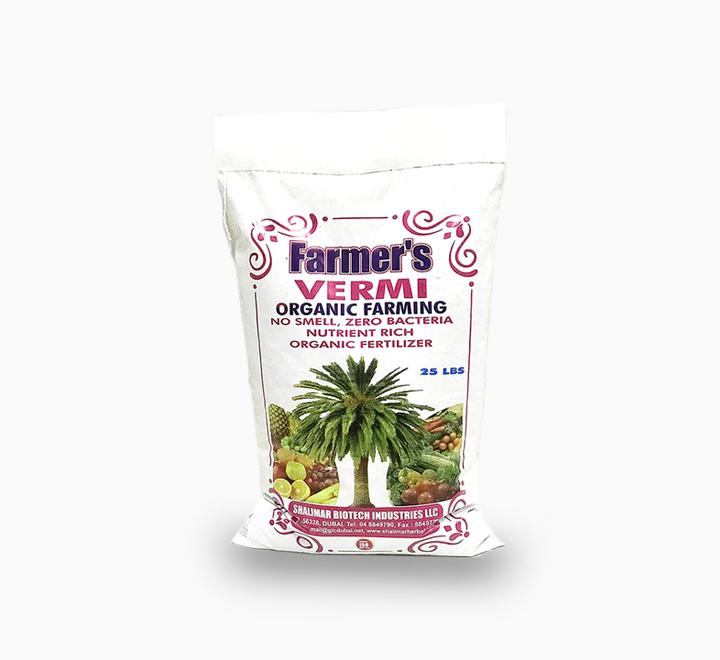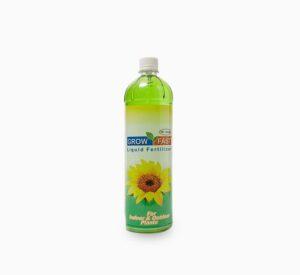Vermicompost for Organic Farming
Vermicompost for Organic Farming
Vermicompost for Organic Farming has gained popularity in both industrial and domestic settings because, as compared with conventional composting, it provides a way to treat organic wastes more quickly. Enriches soil with micro-organisms (adding enzymes such as phosphatase and cellulase).
Vermicomposting has gained popularity in both industrial and domestic settings because, as compared with conventional composting, it provides a way to treat organic wastes more quickly.
Reasons to buy from us
- Guaranteed quality
- Careful handling
- On time delivery
- Support 24/7
- Telephone support
- Live chat support
- Trained staff
Related Product: Vermi Fertilizer 25KG
د.إ55.00
Vermicompost for Organic Farming
Introduction
Vermicompost for Organic Farming has emerged as a game-changer in the agricultural landscape, captivating attention in both industrial and domestic settings. In comparison to traditional composting methods, vermicomposting offers a superior and expedited solution for the treatment of organic waste, enriching soil with essential micro-organisms and augmenting enzymatic activities such as phosphatase and cellulase.
The Dynamics of Vermicomposting
Rapid Organic Waste Decomposition
Vermicomposting stands out for its ability to accelerate the decomposition of organic matter. The process involves the use of specialized earthworms – typically red wigglers or Eisenia fetida – to break down organic materials more efficiently than conventional composting. This results in a quicker transformation of waste into nutrient-rich vermicompost, a potent organic fertilizer.
Microbial Enrichment of Soil
One of the key advantages of Vermicompost is its remarkable ability to enhance soil health through the introduction of beneficial microorganisms. These microorganisms, including bacteria and fungi, play a pivotal role in soil fertility by promoting nutrient cycling and facilitating better plant growth.
Enzymatic Enhancement
Vermicompost goes beyond the traditional by not only introducing beneficial micro-organisms but also enriching the soil with essential enzymes like phosphatase and cellulase. These enzymes contribute to the breakdown of complex organic compounds, making nutrients more accessible to plants and fostering a healthier soil structure.
Related Product: Vermi Fertilizer 25KG
Vermicompost Product Description
Crafted with precision, our Premium Vermicompost Blend embodies the epitome of organic fertility. Comprising a meticulous selection of organic kitchen waste, agricultural residues, and the finest red wigglers, our vermicompost is a powerhouse of nutrients.
Features:
- High Microbial Activity: Our vermicompost is teeming with beneficial bacteria and fungi, ensuring optimal soil health and nutrient availability.
- Enzyme-Rich Formula: The inclusion of phosphatase and cellulase enzymes catalyzes the breakdown of organic compounds, promoting robust plant growth.
- Nutrient-Rich Composition: Packed with essential nutrients like nitrogen, phosphorus, and potassium, our vermicompost acts as a complete organic fertilizer.
- Odor-Free Processing: Our advanced vermicomposting techniques eliminate unpleasant odors, making it an ideal solution for both indoor and outdoor use.
Benefits of Vermicompost for Organic Farming
Sustainable Soil Improvement
Incorporating vermicompost into agricultural practices leads to sustainable soil improvement. The enhanced microbial activity and nutrient content contribute to long-term soil fertility, reducing the dependence on synthetic fertilizers.
Increased Crop Yield
Studies have shown a direct correlation between the use of vermicompost and increased crop yield. The enriched soil promotes healthier root development and better nutrient absorption, resulting in bountiful harvests.
Environmental Friendliness
Vermicomposting aligns with eco-friendly practices by diverting organic waste from landfills and converting it into a valuable resource. This not only reduces environmental impact but also supports a circular economy.
How to Incorporate Vermicompost into Your Farming Practices
Application Rates
Determine the appropriate application rates based on your crop type and soil condition. A general guideline is to apply 1 to 2 inches of vermicompost to the soil surface and incorporate it thoroughly.
Composting Techniques
Optimize vermicomposting efficiency by maintaining the right balance of green and brown materials, ensuring proper aeration, and monitoring moisture levels. Regular turning of the compost pile is crucial for uniform decomposition.
Crop-Specific Guidance
Different crops may have varying nutrient requirements. Consult with agricultural experts or utilize soil testing services to tailor your vermicompost application to the specific needs of your crops.
Conclusion
In the realm of sustainable agriculture, Vermicompost for Organic Farming emerges as a beacon of innovation and environmental responsibility. Its ability to expedite organic waste decomposition, enrich soil with beneficial microorganisms, and enhance enzymatic activities sets it apart as a premium choice for modern farmers.
If you’re ready to elevate your farming practices and contribute to a greener future, consider integrating our Premium Vermicompost Blend into your agricultural endeavors. Experience the transformative power of vermicomposting and witness the sustainable growth of your crops.





